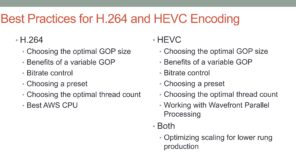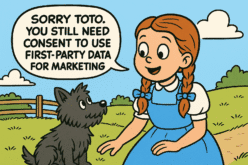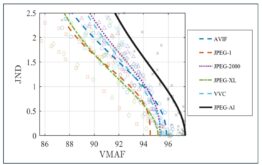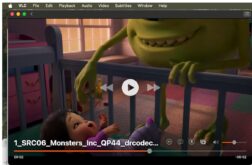Recent bad press received by MPEG LA seems to disprove the old adage that all PR is good PR. A few weeks ago, writing for Fox News, Steve Forbes said:
One example is MPEG LA—a patent pooling entity and owner of the MPEG-2 standard commonly found in televisions, gaming consoles, and personal computers—who does not adjust their licensing fees and locks in licensors to contract terms far longer than the life of the patents despite holding predominantly expired patents.
Like trolls, MPEG LA also uses patents offensively – currently pursuing Craig Electronics, Curtis International and ViewSonic for infringement of its patents and a pool controlled by MPEG LA called ATSC found in digital television. Because the ATSC technology standard is claimed to be reliant on the MPEG-2 standard, it allows MPEG LA to seek infringement rewards.
To which MPEG-LA president Larry Horn replied:
Forbes also repeats the false claim that MPEG LA “does not adjust their licensing fees and locks in licensors [we assume he meant licensees] to contract terms far longer than the life of the patents despite holding predominantly expired patents.”
The goal of our MPEG-2 Patent Portfolio License is to incorporate as much essential intellectual property as possible under one license for the benefit of the marketplace including licensees and patent holders. Doing that relies on achieving a balance between what patent holders are willing to offer their patents for and what licensees are willing to pay.
Although the license grew from eight patent holders and 100 patents to 27 patent holders with more than 1,000 patents, it has delivered a reliable market-based solution in which instead of increasing royalties commensurate with this dramatic growth in value, royalties have been reduced by one-half to two-thirds.
Further, each patent being essential to the standard, licensees pay royalties only for products manufactured or sold in a country with one or more active (not expired) patents at that time. All patents in the license are published on our website and applicable expirations are known throughout.
The latest to pile on is Howard Williams, Professor Emeritus at the University of Strathclyde and former Research Fellow at the Oxford Internet Institute. Writing in TelecomTV, after making essentially the same argument as Forbes, Williams stated:
These high license fees erect barriers to innovation rather than promote it. They allow MPEG LA and its like to wield the power of the technology pools they manage to maximize profits.
Why does all this matter? In the end it means consumers and small innovative companies are in all probability paying vastly more for products such as DVDs, televisions, gaming consoles, personal computers, and other hi-tech products. These high prices can stunt innovation and raises costs for consumers.
Note that Williams qualified his statement with “in all probability,” basically an academic’s way of saying “I might be wrong, and if I am, at least I warned you.” In this case he is both wrong and exceptionally lazy, as a quick look at the MPEG-LA MPEG-2 license structure makes all this laughable, particularly the claim of paying “vastly more” for DVDs. According to the MPEG-2 License Summary available on the MPEG-LA site (Figure 1), MPEG-2 royalties add a staggering $0.016 to a single movie on a DVD.

Figure 1. MPEG LA’s licensing terms for content licensees
True, royalties on MPEG-2 encoder and decoder products are substantially higher (Figure 2). But at $2.00/unit, and with DVD players costing $30 or less and Blu-ray players costing $80 or less, it’s hard to consider either of these prices “vastly more” than anything. As for affecting other higher-priced products like TVs, consoles and personal computers, that’s even more laughable. It’s definitely hard to argue that a $2.00 license fee “erects a barrier to innovation,” particularly when it’s a critical enabling technology without which the TV or console couldn’t perform its essential function.

Figure 2. MPEG LA’s MPEG-2 licensing terms for hardware manufacturer licensees
From my talks with encoder vendors, most manufacturers consider these license costs the same as hardware components: No one likes spending the money, but the cost is unavoidable. Moreover, since the market for DVD players (and hardware and software decoders) wouldn’t exist without one cohesive standard, I’m sure most of the vendors are glad the standard exists.
Obviously, if you’re building a product for sale, these licensing costs get factored into the bill of materials and affect end user pricing. Sure, we pay for it as end users, and lower cost is always better, but $2.00 doesn’t qualify as “vastly” anything, even if grossed up by 3x-5x.
From my perspective, this whole licensing discussion only came to the fore when browser vendors like Mozilla and Opera didn’t want to pony up the $6.5 million per annum to license H.264 decode (Mozilla later reversed its position and started to support H.264 in early 2012). Then the whole “internet should be free” crowd awoke and anyone who (gasp) wanted to make a return on their R&D investment became Dr. Evil incarnate. I’m wondering how many of those individuals would argue that the fruits of their daily labors should also be free.
Don’t get me wrong, I’m against patent trolls that buy or otherwise acquire patents and then seek compensation for them. But MPEG-LA represents the original developers of MPEG-2 technology, and it strikes me that they’re entitled to make as much as they possibly can from their investment. MPEG-LA deserves whatever compensation they get for organizing the group and making the technology easy to license. At 1999 licensees and counting, they must be doing something right.
In a time where the Wall Street bankers who tanked our economy with knowingly toxic assets still make eight figure salaries, where the budget deficit is $17 trillion, and where Justin Bieber makes $58 million, you would think Forbes and Williams could find a more suitable target for their financial-related outrage than $.016/disc. That’s my two cents, anyway.
 Streaming Learning Center Where Streaming Professionals Learn to Excel
Streaming Learning Center Where Streaming Professionals Learn to Excel








